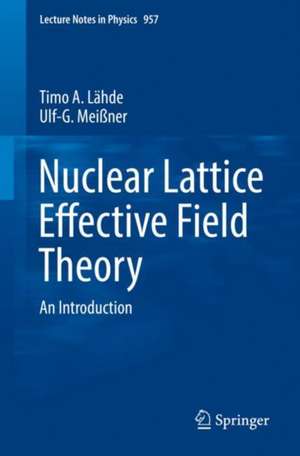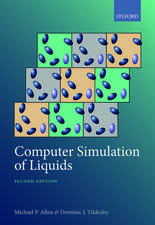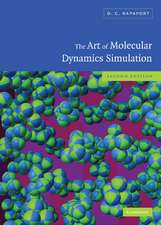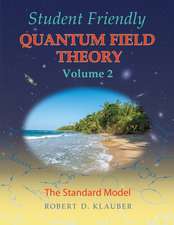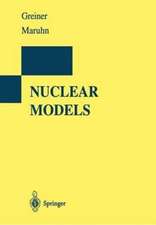Nuclear Lattice Effective Field Theory: An Introduction: Lecture Notes in Physics, cartea 957
Autor Timo A. Lähde, Ulf-G. Meißneren Limba Engleză Paperback – 8 mai 2019
In the last part of the book, the Euclidean time projection method is introduced and used to compute the ground-state properties of nuclei up to the mid-mass region. In this context, the construction of appropriate trial wave functions for the Euclidean time projection is discussed, as well as methods for determining the energies of the low-lying excitations and their spatial structure. In addition, the so-called adiabatic Hamiltonian, which allows nuclear reactions to be precisely calculated, is introduced using the example of alpha-alpha scattering. In closing, the book demonstrates how Nuclear Lattice EFT can be extended to studies of unphysical values of the fundamental parameters, using the triple-alpha process as a concrete example with implications for the anthropic view of the Universe. Nuclear Lattice Effective Field Theory offers a concise, self-contained, and introductory text suitable for self-study use by graduate students and newcomers to the field of modern computational techniques for atomic nuclei and nuclear reactions.
Din seria Lecture Notes in Physics
- 19%
 Preț: 424.00 lei
Preț: 424.00 lei - 17%
 Preț: 360.73 lei
Preț: 360.73 lei -
 Preț: 429.22 lei
Preț: 429.22 lei - 17%
 Preț: 427.62 lei
Preț: 427.62 lei - 17%
 Preț: 460.26 lei
Preț: 460.26 lei -
 Preț: 427.96 lei
Preț: 427.96 lei -
 Preț: 481.93 lei
Preț: 481.93 lei - 17%
 Preț: 494.66 lei
Preț: 494.66 lei -
 Preț: 281.90 lei
Preț: 281.90 lei - 17%
 Preț: 493.20 lei
Preț: 493.20 lei - 17%
 Preț: 426.72 lei
Preț: 426.72 lei -
 Preț: 365.15 lei
Preț: 365.15 lei -
 Preț: 374.52 lei
Preț: 374.52 lei -
 Preț: 407.98 lei
Preț: 407.98 lei - 20%
 Preț: 428.13 lei
Preț: 428.13 lei -
 Preț: 263.30 lei
Preț: 263.30 lei - 15%
 Preț: 593.73 lei
Preț: 593.73 lei - 15%
 Preț: 528.13 lei
Preț: 528.13 lei -
 Preț: 493.12 lei
Preț: 493.12 lei - 17%
 Preț: 425.68 lei
Preț: 425.68 lei -
 Preț: 280.65 lei
Preț: 280.65 lei -
 Preț: 163.41 lei
Preț: 163.41 lei - 18%
 Preț: 726.59 lei
Preț: 726.59 lei -
 Preț: 394.84 lei
Preț: 394.84 lei - 15%
 Preț: 709.63 lei
Preț: 709.63 lei - 15%
 Preț: 623.90 lei
Preț: 623.90 lei - 20%
 Preț: 476.93 lei
Preț: 476.93 lei - 15%
 Preț: 428.05 lei
Preț: 428.05 lei -
 Preț: 342.78 lei
Preț: 342.78 lei - 18%
 Preț: 851.93 lei
Preț: 851.93 lei -
 Preț: 346.61 lei
Preț: 346.61 lei -
 Preț: 391.57 lei
Preț: 391.57 lei - 15%
 Preț: 633.16 lei
Preț: 633.16 lei -
 Preț: 451.71 lei
Preț: 451.71 lei - 5%
 Preț: 1497.80 lei
Preț: 1497.80 lei -
 Preț: 374.85 lei
Preț: 374.85 lei -
 Preț: 380.07 lei
Preț: 380.07 lei - 15%
 Preț: 516.14 lei
Preț: 516.14 lei - 15%
 Preț: 583.78 lei
Preț: 583.78 lei - 15%
 Preț: 508.60 lei
Preț: 508.60 lei -
 Preț: 469.73 lei
Preț: 469.73 lei -
 Preț: 388.90 lei
Preț: 388.90 lei - 15%
 Preț: 500.24 lei
Preț: 500.24 lei -
 Preț: 386.52 lei
Preț: 386.52 lei - 15%
 Preț: 472.88 lei
Preț: 472.88 lei -
 Preț: 424.27 lei
Preț: 424.27 lei -
 Preț: 380.07 lei
Preț: 380.07 lei - 15%
 Preț: 500.01 lei
Preț: 500.01 lei
Preț: 494.32 lei
Nou
Puncte Express: 741
Preț estimativ în valută:
94.60€ • 98.40$ • 78.10£
94.60€ • 98.40$ • 78.10£
Carte tipărită la comandă
Livrare economică 15-29 aprilie
Preluare comenzi: 021 569.72.76
Specificații
ISBN-13: 9783030141875
ISBN-10: 303014187X
Pagini: 250
Ilustrații: XI, 396 p. 52 illus., 37 illus. in color.
Dimensiuni: 155 x 235 mm
Greutate: 0.57 kg
Ediția:1st ed. 2019
Editura: Springer International Publishing
Colecția Springer
Seria Lecture Notes in Physics
Locul publicării:Cham, Switzerland
ISBN-10: 303014187X
Pagini: 250
Ilustrații: XI, 396 p. 52 illus., 37 illus. in color.
Dimensiuni: 155 x 235 mm
Greutate: 0.57 kg
Ediția:1st ed. 2019
Editura: Springer International Publishing
Colecția Springer
Seria Lecture Notes in Physics
Locul publicării:Cham, Switzerland
Cuprins
Introduction to Effective Field Theory.- Nuclear Forces in Chiral EFT.- Lattice Formulations.- Lattice Chiral Effective Field Theory.- Two and Three Nucleons on the Lattice.- Lattice Monte Carlo.- LIght and Medium-Mass Nuclei on the Lattice.- Further Developments.- Notations and Conventions.- Basics of the Nucleon-Nucleon Interaction.- Study of Rotational Symmetry Breaking Effects in an A Cluster Model.- Monte Carlo Sampling.- Hybrid Monte Carlo Action and Force.- Monte Carlo Calculation of Observables.-
Recenzii
“Nuclear Lattice Effective Field Theory … is a great practical advantage to the reader. … Lähde and Meißner’s helpful primer has the potential to stimulate increased efforts by serving newcomers as an essential guide to the field.” (Ruprecht Machleidt, Physics Today, Vol. 72 (10), October, 2019)
Textul de pe ultima copertă
This primer begins with a brief introduction to the main ideas underlying Effective Field Theory (EFT) and describes how nuclear forces are obtained from first principles by introducing a Euclidean space-time lattice for chiral EFT. It subsequently develops the related technical aspects by addressing the two-nucleon problem on the lattice and clarifying how it fixes the numerical values of the low-energy constants of chiral EFT. In turn, the spherical wall method is introduced and used to show how improved lattice actions render higher-order corrections perturbative. The book also presents Monte Carlo algorithms used in actual calculations.
In the last part of the book, the Euclidean time projection method is introduced and used to compute the ground-state properties of nuclei up to the mid-mass region. In this context, the construction of appropriate trial wave functions for the Euclidean time projection is discussed, as well as methods for determining the energies of the low-lying excitations and their spatial structure. In addition, the so-called adiabatic Hamiltonian, which allows nuclear reactions to be precisely calculated, is introduced using the example of alpha-alpha scattering. In closing, the book demonstrates how Nuclear Lattice EFT can be extended to studies of unphysical values of the fundamental parameters, using the triple-alpha process as a concrete example with implications for the anthropic view of the Universe. Nuclear Lattice Effective Field Theory offers a concise, self-contained, and introductory text suitable for self-study use by graduate students and newcomers to the field of modern computational techniques for atomic nuclei and nuclear reactions.
In the last part of the book, the Euclidean time projection method is introduced and used to compute the ground-state properties of nuclei up to the mid-mass region. In this context, the construction of appropriate trial wave functions for the Euclidean time projection is discussed, as well as methods for determining the energies of the low-lying excitations and their spatial structure. In addition, the so-called adiabatic Hamiltonian, which allows nuclear reactions to be precisely calculated, is introduced using the example of alpha-alpha scattering. In closing, the book demonstrates how Nuclear Lattice EFT can be extended to studies of unphysical values of the fundamental parameters, using the triple-alpha process as a concrete example with implications for the anthropic view of the Universe. Nuclear Lattice Effective Field Theory offers a concise, self-contained, and introductory text suitable for self-study use by graduate students and newcomers to the field of modern computational techniques for atomic nuclei and nuclear reactions.
Caracteristici
Authored by leading researchers in the field First comprehensive and tutorial description of this new computational method Suitable as textbook for advanced courses or as self-study guide
